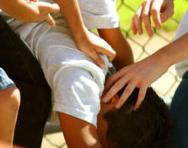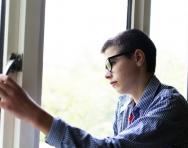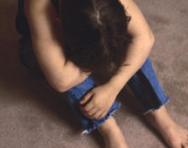Childhood friendships: should you intervene?

Childhood friendships are such a critical part of school life, so when a disagreement leads to friends falling out it can end up affecting a child’s learning and desire to go to school. Many parents are desperate to help but worry about making the situation worse.


Boost Your Child's English & Maths!
- Weekly programme for each school year
- Worksheets sent direct to your inbox
- Keeps your child's learning on track
Should parents intervene?
A survey by parent support charity Family Lives found that parents didn’t know which way to turn or how seriously to take the situation, even though some talked about their children feigning illness or even refusing to go to school.
The charity found that 57 percent of parents would turn to the class teacher for help, whilst 30 percent said they would leave well alone in the hope that the problem would sort itself out. The remaining 13 percent said they would approach the other parents directly.
This can be a difficult call because parents can end up having cross words with one another while, in the meantime, the children may have all made friends again.
It’s natural for children to fall out and make friends again. So the key is being able to recognise when the problem is more than a playground squabble and is beginning to affect your child’s education and wellbeing.
How do you choose the right approach?
Primary school teacher Rosalind Walker believes that in most cases it’s best to let the friends resolve problems themselves.
“Sometimes parents try to sort the situation out themselves, with the best of intentions but many go about it the wrong way and can be aggressive and confrontational with their child’s friend or the friend’s parent,” she says.
“When I have noticed a child’s schoolwork dropping off because of a playground fight, I have spoken to both children separately and then encouraged them to speak to each other while I act as a mediator. In the majority of cases, they resolve the matter themselves and within ten minutes they are best friends again,” she adds.
School friendships: what you can do to help
- It is important that you listen to your child and reassure them that you love them and are there for them.
- Praise and encourage them, which will help to build up their self esteem and give them the confidence to cope with these situations.
- Arrange a confidential chat with the teacher and ask them to keep an eye on the situation without making an issue of it initially.
- Some schools have some sensitive and innovative ways of handling this problem, such as using it as the discussion in assembly or having things like ‘buddy benches’ in playgrounds where children can sit if they are being left out and older children take responsibility for them. Investigate whether there’s anything like that in your child’s school.
- If the problem persists and you don’t feel it is being dealt with effectively, you could ask for a meeting with the head or the chair of governors. It helps to write down all the questions you have and the points you want to make.
- Try to keep copies of any letters you send and a diary of where you have gone for help and information.
- Ensure you seek support for yourself if you’re overwhelmed, whether it is from a relative or friend or someone at Family Lives.

Give your child a headstart
- FREE articles & expert information
- FREE resources & activities
- FREE homework help








